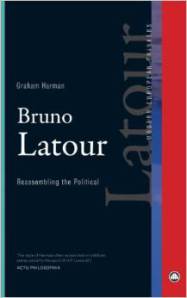
Addendum: Markus Gabriel had to cancel due to (happy!) family circumstances. Sorry for the late notification.
Please note: The doors open at 09:00 o’clock. Please be on time.
On the 20th of February Coin is organizing the Future of Realism Colloquium.
Topic
The American philosopher Lee Braver wrote in 2009 that the history of continental philosophy could be considered to be a history of anti-realism. If Braver is right than the last decade might have been a turning point for continental philosophy. A new generation of philosophers seeks to undo the age-old heritage of Immanuel Kant’s Copernican Revolution. Upcoming trends such as Speculative Realism and New Materialism, as well as the revival of the works of Gilles Deleuze created a milieu in continental philosophy where the topic of realism (as opposed to idealism) is again heavily debated. This colloquium tries to find out what the rise of continental realism had to offer beyond the polemic talks against the dominance of idealism in continental philosophy. What does realism has to offer for the future? In other words: what will be the relevance of realism for other branches of philosophy and science? What are the prospects of the realism debate, its pitfalls, limits? And what path will realism be taking in the future?
Speakers
Maurizio Ferraris (Università degli Studi di Torino)
Graham Harman (American University Cairo)
Gabriel Catren (Université Paris Diderot – Paris 7)
Tristan Garcia
Markus Gabriel (Universtät Bonn)
Time: From 09:30 – 17:30
Place: Universiteitstheater UvA, Nieuwe Doelenstraat 16-18, Amsterdam
Registration:
Admission is 3 euros. Please transfer to NL73INGB0008630542 att. T.N. Kayzel and send an e-mail to futureofrealism@gmail.com with your name, and please mention for how many admissions you paid.
Abstracts
The Future of Learned Ignorance
Graham Harman (American University of Cairo)
The title of this lecture is borrowed from Nicholas of Cusa, but could almost refer to Socrates as well. When “realism” is invoked in philosophy, too often the goal is to smash relativism by claiming direct access to the world as it is in itself, with the natural sciences usually leading the way. In fact, realism and knowledge face each other like mortal foes. The real is that which is irreplaceably what it is; to translate it into some form of knowledge, or some form of direct access more generally, is to sacrifice the real on the altar of knowledge. While this does help to place limits on relativism, it does so at the high price of lapsing into full-blown idealism. In this lecture I will contend that philosophy thrives only when it embraces the position of ignorance originally adopted by Socrates, but embraced only rarely ever since, as philosophy has been repeatedly redefined as some form of knowledge of thing: whether it be knowledge of a thing’s components, or of its effects. Rather than aspiring to be a knowledge, it is time for philosophy to return to its Socratic roots, producing a real of which we are ignorant, though learnedly ignorant. In this respect, philosophy is closer to the art and design fields than it is to the natural sciences or mathematics.
Transcendental Realism
Maurizio Ferraris (Università degli Studi di Torino)
I will defend three theses. First that anti-realism—from Kant to postmodernism—stems from the confusion between ontology (what there is) and epistemology (the way in which we know or represent what there is). Second that this anti-realism is a form of transcendental idealism, because it takes epistemology as the condition of the possibility of ontology. And third that the new realism (post-postmodern realism) is both a metaphysical realism, because it takes ontology to be independent of epistemology (what I call “negative realism”), and a transcendental realism, because it is considers ontology the condition of the possibility of epistemology (what I call “positive realism).
A Foray into Immanental Phenoumenology
Gabriel Catren (Université Paris Diderot – Paris 7)
In this lecture we shall address the speculative circle between transcendental philosophy and (what we could call in the wake of German Idealism) philosophy of nature. Whereas the former will be understood – after Kant – as a transcendental potentialization of the Copernican revolution that rendered possible the object-oriented nature of modern science, the latter will be understood as a post-critical naturalization of transcendental philosophy addressing the “immanental” conditions of possibility for the institution of the transcendental subject. As a consequence of this naturalization of transcendental philosophy, any form of transcendental reflection on the particular generic structure of the subject of experience makes possible thespeculative sublation of the concomitant form of transcendental perspectivism. In this conceptual framework, the infinite projects of the diverse modes of thought (philosophy, science, art, etc.) can be understood as projects of phenoumenal-oriented universalizationintended to bypass the transcendental insularity of human experience.
What is something?
Tristan garcia
Assuming that the concept of “something” is the weakest possible determination of being, Tristan Garcia will argue that “something” is what is incepted by thinking when it is excepted by thinking; it is so weak, that even its negation turns out to be its affirmation.
Garcia will argue that the ontological model he defends in his book Form and Object is a way to think that weakest possible something and he will distinguish it from other contemporary models.
This ontology amounts to turning everything into a “something”: turning everything that was below “somethingness” up into something (an attribute, a non-existent thing, a contradictory thing), and turning everything that was beyond “somethingness” down into something (a substance, a person, the sacred).
Garcia will offer a glimpse of that radical ontology, stripping all entities of their determinations, intensity or depth, not to produce an effect of universal equivalence, but to find an end to the endless liberal ontology of modernity. He will suggest considering the ontological flatness as a gauge to recover a realistic sense of differences between objects, extensive relations and varying intensities.






